Aug. 3, 2018
Prelims Pointers
Aug. 3, 2018
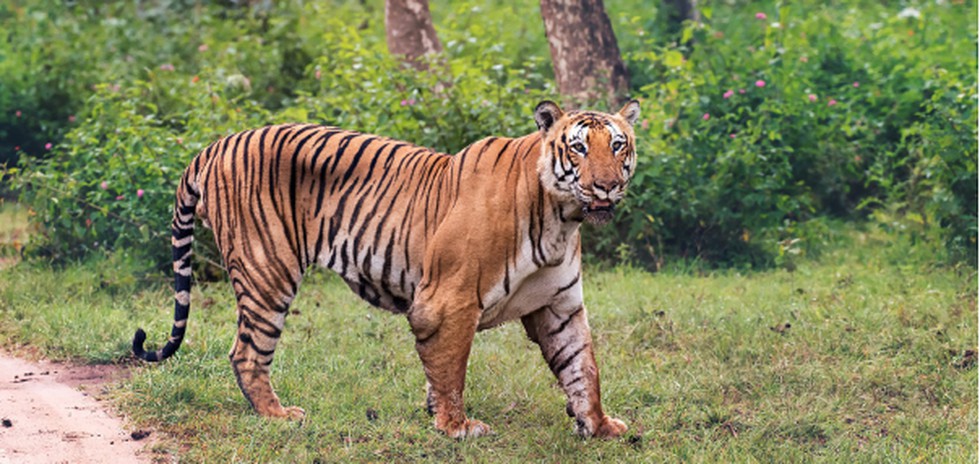
Status:
- In 1974, it was established as one of the first 9 Tiger Reserves under Project Tiger.
- In 1985, by including adjacent areas, it was enlarged and named as Bandipur National Park.
- Geography:
- Tiger Reserve is situated in two contiguous districts (Mysore and Chamarajanagar) of Karnataka.
- It is located at the tri-junction area of the States of Karnataka, Tamil Nadu and Kerala.
- Bandipur Tiger Reserve is surrounded by
- Nagarahole Tiger Reserve (Tamil Nadu) in the North West (Kabini Reservoir separates the two)
- Mudumalai Tiger Reserve (Tamil Nadu) in the South and
- Wayanad Wildlife Sanctuary (Kerala) in the South West
- Nagarahole Tiger Reserve (Tamil Nadu) in the North West (Kabini Reservoir separates the two)
- Together these 4 areas are part of the Nilgiri Biosphere Reserve.
- Rivers: The park is situated between Kabini riverin the north and the Moyar river in the south. The Nugu river runs through the park.
Ban on night traffic:
- In 2009, Karnataka High Court banned night traffic (between 9 pm and 6 am) on two national highways passing through Bandipur –
- NH-67 (linking Karnataka with Tamil Nadu) and
- NH-212 (linking Karnataka with Kerala).
- NH-67 (linking Karnataka with Tamil Nadu) and
- Kerala is arguing for removing the restriction on NH-212 as the alternate hilly road to divert the NH-212 traffic is longer by 30 km and adds to fuel consumption.
- Arguments in favour of Ban by environmentalists:
- Night traffic led to road kills of more than 200 animal species in Bandipur. Ban has reduced Roadkill by nearly 6 times.
- Night traffic adversely impacted the life cycle of these species.
- Tamil Nadu never contested the decision. Infact, it imposed a similar ban on night traffic through its Mudumalai tiger reserve.
- With more than 100 tigers and 1,800 elephants, Bandipur is a success stories of conservation.
- Roads proposed under the Bharatmala project will connect Bangalore to different places in Kerala without affecting protected forests.
- Night traffic led to road kills of more than 200 animal species in Bandipur. Ban has reduced Roadkill by nearly 6 times.
- Way ahead: Supreme court has decided to hear the matter on August 8, 2018.
Prelims Pointers
Aug. 3, 2018

About:
- ISEB is an independent society of scholars working in the field of evolutionary biology.
- Objectives: To promote evolutionary biology in India through research, teaching and contributing to policy suggestions on related matters.
- Status: A not-for-profit organization.
- Membership: Apart from researchers in the field, anyone with demonstrated interest in the mission of the society can apply for its membership.
- Founder President: Professor Raghavendra Gadagkar from the Centre for Ecological Sciences and Centre for Contemporary Studies at IISc-Bengaluru.
- HQ: It is located in the premises of Indian Institute of Science Education and Research, Mohali.
Prelims Pointers
Aug. 3, 2018
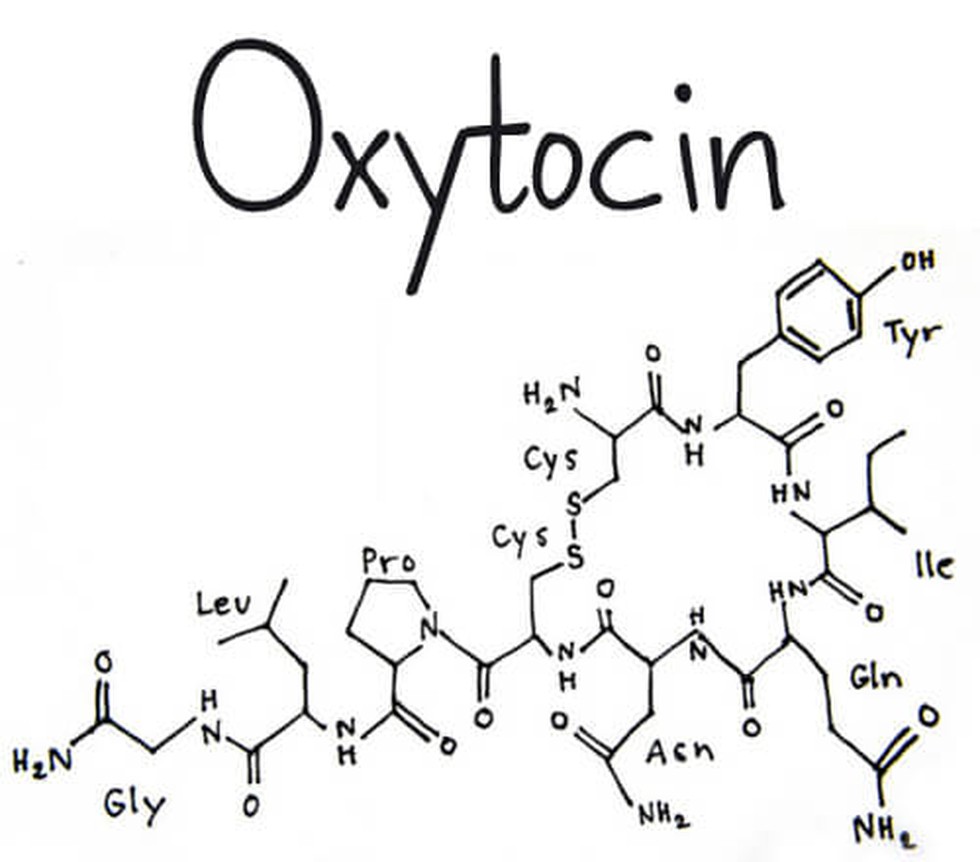
About:
- Oxytocin, often called the ‘love hormone’, is a hormone secreted by Pituitary gland. It is released naturally in human bonding activities such as sex, childbirth and breastfeeding.
- The Oxytocin drug in debate, is a synthetic version of a human hormone.
- It is used by doctors in Humans to facilitate childbirth and reduce postpartum bleeding.
- World Health Organization (WHO) recommends it as the drug of choice in postpartum haemorrhage.
Retail Ban: Timeline
|
April 2018
|
Union Health Ministry banned the retail sale of Oxytocin for being misused by diary owners to boost milk production (as it stimulates the mammary gland). Acc. to reports, it leads to infertility in dairy animals, and has also been linked to mastitis, a painful inflammation of the udder (mammary gland of female cattle). Milk consumers worry about exposure to it through dairy products. |
|
June 2018 |
Union health ministry announced that only a single PSU, Karnataka Antibiotics and Pharmaceuticals Ltd., could manufacture and supply the drug across the country. |
|
July 2018
|
Drug Technical Advisory Board (DTAB) recommended to lift the ban its retail sale. The decision was welcomed by gynaecologists as it would reduce the incidences of women bleeding to death during child birth. |
Drug Controller General of India (DCGI) regulates pharmaceutical and medical devices.
Under the Drugs and Cosmetics Act, 1940, DCGI is advised by the Drug Technical Advisory Board (DTAB).
Prelims Pointers
Aug. 3, 2018

About:
- Facebook has announced a new feature that will alert users once they have spent more than a pre-set amount of time on the platform, a step towards digital wellbeing.
- Arguments in favour:
- According to a study published (in May 2018) by Aligarh Muslim University, majority of students used their smartphones for 4-7 hours every day.
- Obsession with the mobile devices is due to "FOMO" or the "fear of missing out."
- Increasing time spent in the virtual world not only affects physical wellbeing but also leads to cutting oneself from relationships in their physical universe.
- According to a study published (in May 2018) by Aligarh Muslim University, majority of students used their smartphones for 4-7 hours every day.
- Earlier this year, Google also announced series of steps towards digital wellbeing.
Prelims Pointers
Aug. 3, 2018
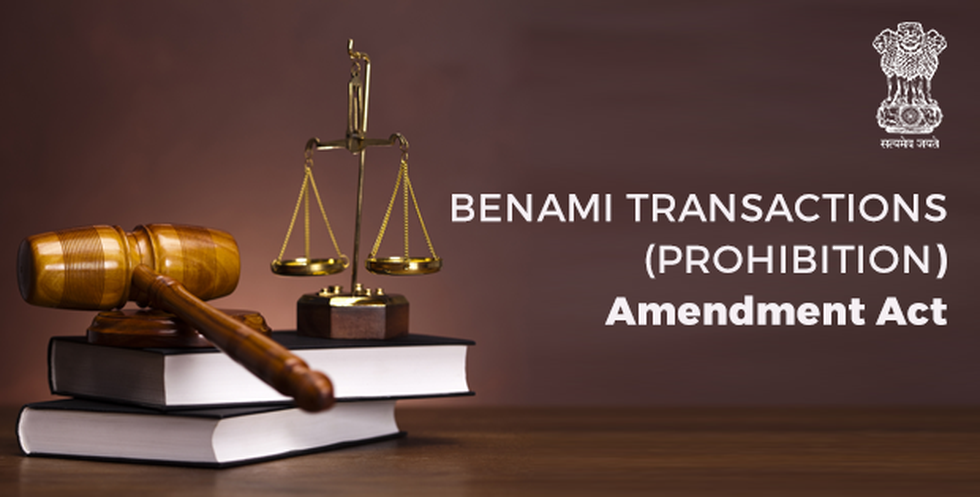
About:
- Benami means a property without any name. It is the kind of transaction where the person who pays for the property does not buy it under his/her own name. Rather it is generally purchased in the name of spouse or child.
- It is a common method for generating Black Money.
- To cub it, Benami Property Transactions Act 1988 was enacted which was further strengthened by amending through the Benami Transactions (Prohibition) Amended Act, 2016.
Salient features:
- The amended law empowers the specified authorities to provisionally attach benami properties which can eventually be confiscated.
- Besides, a person found guilty of offence of benami transaction shall be punishable with rigorous imprisonment for 1-7 years along with payment of fine.
- Central government, in consultation with the Chief Justice of the respective High Courts, will establish special courts for speedy completion of Trials within six months.
- However, the required special courts have not been set up yet.
- Therefore, despite the investigation being completed in almost 100 cases, prosecution of accused persons has not started.
- However, the required special courts have not been set up yet.
Prelims Pointers
Aug. 3, 2018
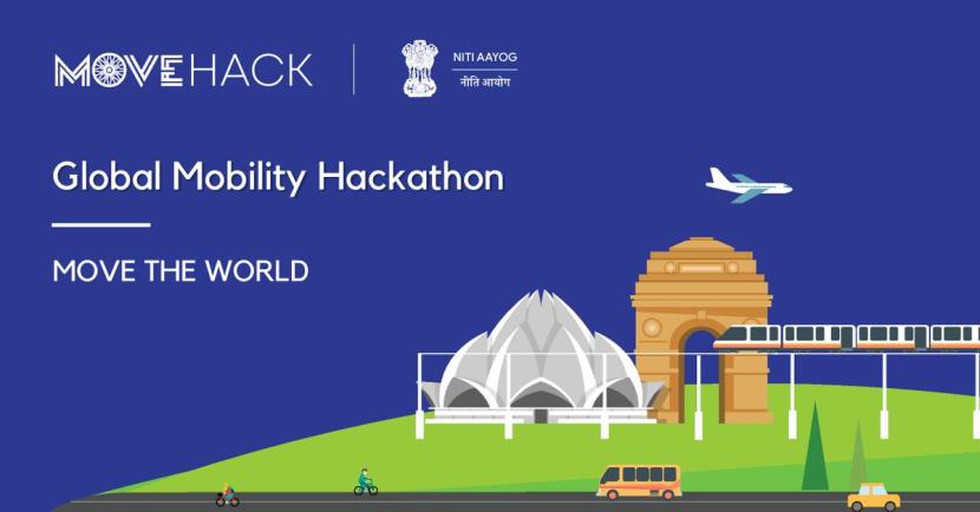
About:
- Transportation and Mobility, ranging from pedestrian and personal transport to public transit and freight movement, is a key driver of innovation and economic growth of the 21st century.
- In this background, MoveHack is being held with the objective of bringing innovative solutions to problems pertaining to mobility.
- The hackathon has two-pronged campaign approach:
- Just Code It: Solutions through data analysis
- Just Solve It: Solutions to transform mobility infrastructure through technology.
- Just Code It: Solutions through data analysis
- Move Hack is focused on 10 themes and structured over three legs: (1) online, (2) followed by Singapore leg, and (3) the finals in New Delhi (in September 2018).
- It is being organized in partnership with Government of Singapore.
Hackathon is any event, typically lasting several days, in which a large number of people meet to engage in collaborative computer programming.
Crowdsourcing is the practice of obtaining needed services, ideas, or content from a large group of people esp. from the online community.
Prelims Pointers
Aug. 3, 2018
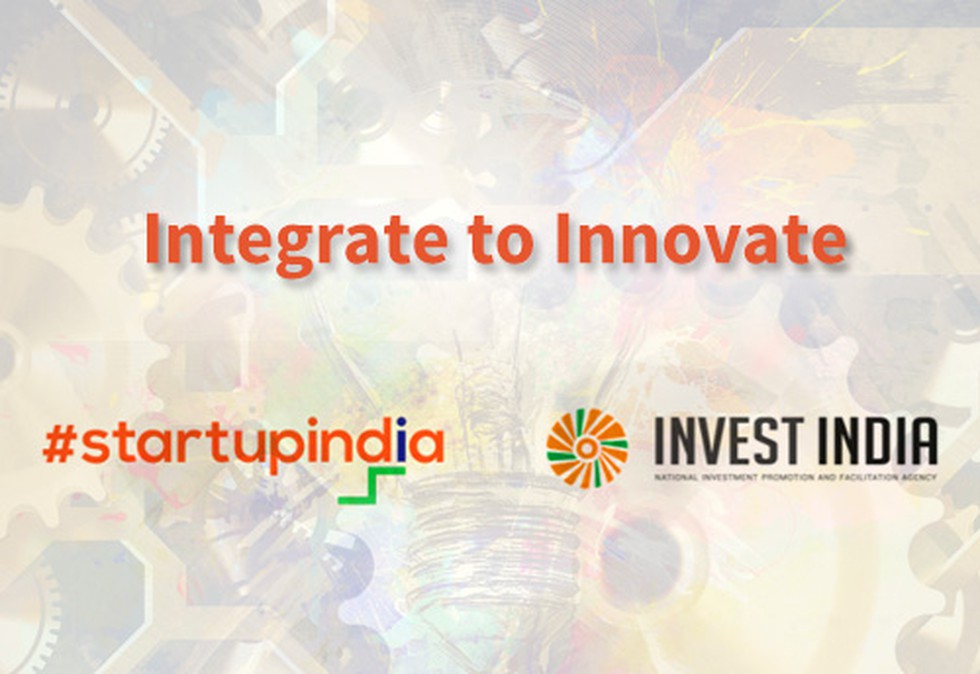
About:
- It is a 3-month programme for energy startups.
- Under this, corporate houses would give energy startups access to technology and potential customers apart from grant of upto ₹ 5 Lakh.
- Entries are invited from innovators across various stages of the energy life-cycle—generation, distribution and consumption—in multiple sectors such as households, farm, industry, infrastructure, building, utility and transport.
Invest India is the National Investment Promotion and Facilitation Agency of India. It acts as the first point of reference for investors in India.
Invest India is set up as a non-profit venture under the Department of Industrial Policy and Promotion (Union Ministry of Commerce).
Prelims Pointers
Aug. 3, 2018
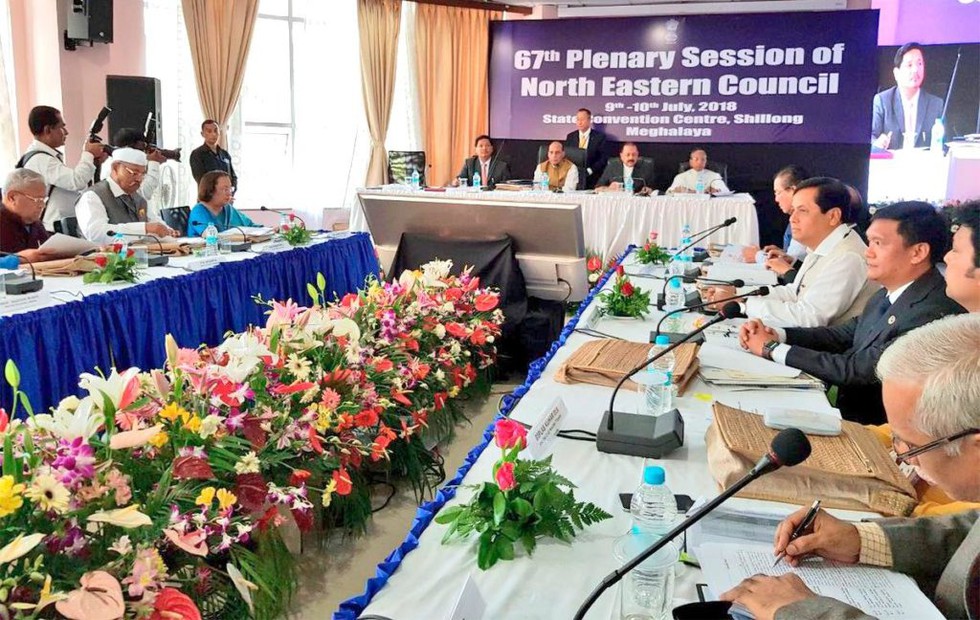
About:
- Status: NEC is not a constitutional body, but a statutory organization established in 1971 under the North Eastern Council Act, 1971.
- Functions:
- To function as Apex Regional Planning Body for the North Eastern Region.
- Implementing various projects through the State and Central agencies.
- To function as Apex Regional Planning Body for the North Eastern Region.
- Composition: It comprises Governors and Chief Ministers of all the 8 North-Eastern States and three members nominated by the President.
- Administration: In June 2018, Union cabinet approved the nomination of the Home Minister as the ex-officio chairman and Minister for DoNER (Development of North-East Region) as the council’s vice chairman.
Prelims Pointers
Aug. 3, 2018
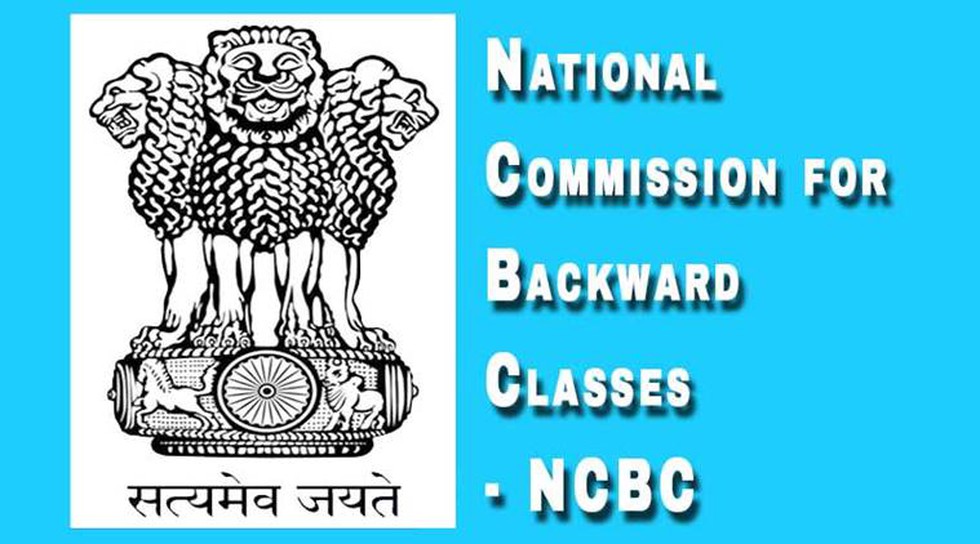
Background:
- Status: Following the Supreme Court judgement (Indra Sawhney vs. Union of India in 1992), the NCBC was constituted in 1993 under the NCBC Act, 1993, thus making it a statutory Body.
- Functions: Its functions were limited to:
- examining the requests for inclusion under list of backward class and
- hearing complaints of over-inclusion/under-inclusion of any backward class in such lists.
- examining the requests for inclusion under list of backward class and
Constitution (123rd Amendment) Bill:
- Articles inserted: It inserts Article 338B, Article 342A and Clause 26C in Article 366.
- Status:
- It accords constitutional status to the NCBC by inserting Article 338B into the Constitution. By this it repeals the 1993 Act.
- Thus status of NCBC is at par with the National Commission for Scheduled Castes (NCSC) and the National Commission for Scheduled Tribes (NCST)
- It accords constitutional status to the NCBC by inserting Article 338B into the Constitution. By this it repeals the 1993 Act.
- Composition: It will consist a Chairperson, Vice-Chairperson and three other members, all of whom shall be appointed by the President of India.
- Functions (under Article 338B):
- To monitor all matters relating to the safeguards provided for the backward classes by constitution or law and to handle their grievances.
- While inquiring into any complaint, it will have all the powers of a civil court (It will be able to summon any person, ask for a document and receive evidence on affidavits).
- To monitor all matters relating to the safeguards provided for the backward classes by constitution or law and to handle their grievances.
- Article 342A: According to it, any addition to the Central list of OBCs will need to be cleared by Parliament.
- Clause 26C in Article 366: It states that "socially and educationally backward classes" means the backward classes as are so deemed under article 342A for the purposes of this Constitution.
A Constitutional amendment under Article 368 needs to be passed by both Houses separately with a special majority.
Prelims Pointers
Aug. 3, 2018
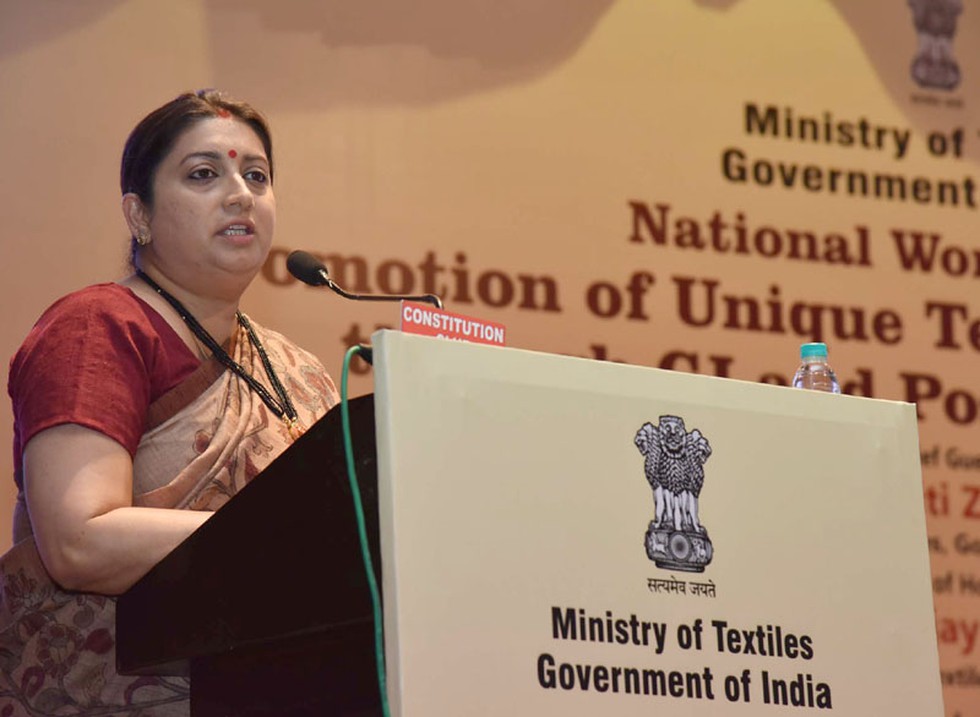
Chirala:
- Location: it is a coastal town in Prakasam District in Andhra Pradesh.
- Nomenclature:
- It was formally known as ‘Kshirapuri’ (Sea like a Milk).
- it has been renamed as Chirala (Chira means saree).
- It is commonly known as 'Mini Mumbai' for its textile market.
- It was formally known as ‘Kshirapuri’ (Sea like a Milk).
Chirala Saree:
- The handloom industry over here centuries old and is famous for producing ‘Chirala silk sarees’ (it was even documented by Italian traveller Marco polo in his travelogue in 13th century).
- These weavers are demanding a Geographical Indication (GI) tag to promote the product.
- The reason for shift towards making Khadi dress material is due to tough competition in the era of global textile, impact of GST and not receiving GI tag.
Aug. 2, 2018
Prelims Pointers
Aug. 2, 2018

Background: Commercial Courts, Commercial Division and Commercial Appellate Division of High Courts Act, 2015
- It was enacted in the background of increasing no. of commercial disputes at domestic and international level.
- Under this commercial courts were established at District Levels in all jurisdictions, except in the 5 areas where High Courts have original ordinary civil jurisdiction. These are cities of Mumbai, Delhi, Kolkata, Chennai and State of Himachal Pradesh.
- The specified value of such commercial disputes to be adjudicated by the Commercial Courts (or the Commercial Division of High Court), is Rs. 1 Crore.
Commercial Courts, Commercial Division and Commercial Division of High Courts (Amendment) Bill, 2018:
It makes the following amendments in the 2015 act:
- Value of a commercial dispute to be reduced from 1 Crore to 3 Lakhs. This would bring a lot of commercial disputes of lesser value to be decided by commercial courts.
- Commercial Courts at district Judge level to be established for the territories where the above mentioned 5 High Courts have ordinary original civil jurisdiction
- Pre-Institution Mediation process to be introduced. Under this commercial disputes can be resolved outside the courts under the Legal Services Authorities Act, 1987.
This is an important step towards improving Ease of Doing Business.
Prelims Pointers
Aug. 2, 2018
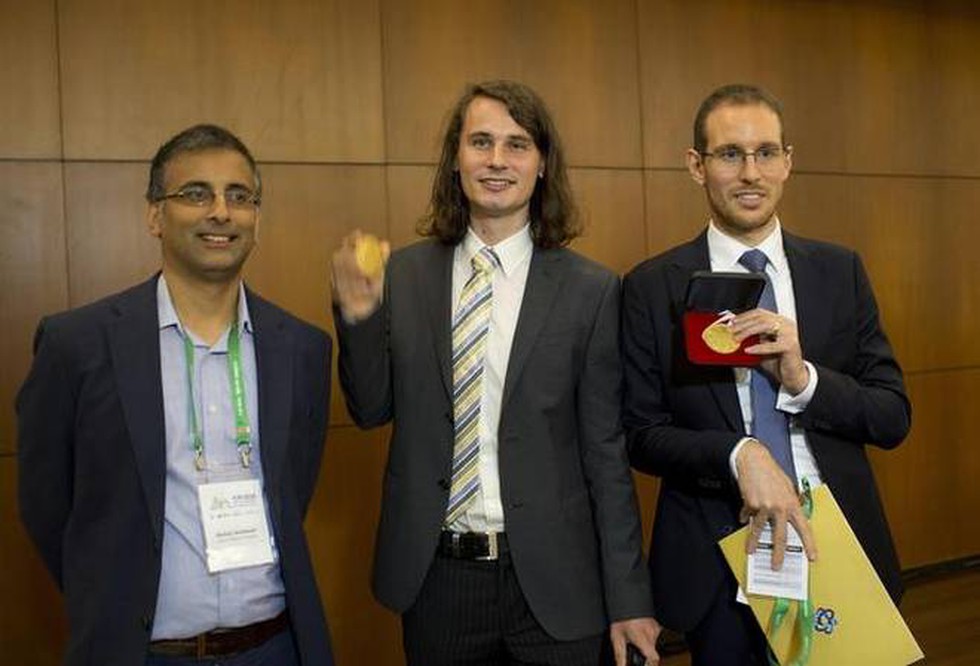
About:
- it is regarded as the highest scientific award for mathematicians and equivalent to a Nobel Prize (which does not exist in mathematics).
- Criteria:
- It recognizes both existing work and the promise of future achievement.
- Therefore, it is awarded to only those outstanding mathematicians who are not over 40 years.
- It recognizes both existing work and the promise of future achievement.
- Award ceremony:
- These are awarded every four years by the International Mathematical Union at the International Congress of Mathematicians
- Up to four medals could be awarded at each Congress.
- Up to four medals could be awarded at each Congress.
- These are awarded every four years by the International Mathematical Union at the International Congress of Mathematicians
- Medal, cash prize:
- The award carries a cash prize of 15000 Canadian dollars.
- Fields Medal is made of gold, and shows the head of Archimedes (287-212 BC), a Greek mathematician and astronomer.
- These are funded by a trust established by J.C. Fields at the University of Toronto.
- The award carries a cash prize of 15000 Canadian dollars.
- Nomenclature:
- It is named after Professor J. C. Fields, a Canadian mathematician who donated funds for establishing the medals.
- Its official name is International medals for outstanding discoveries in mathematics.
- It is named after Professor J. C. Fields, a Canadian mathematician who donated funds for establishing the medals.
- Background: The first Fields Medal was awarded in 1936 at the World Congress in Oslo.
- 2018 Winners (with their institution):
|
Akshay Venkatesh |
Institute for Advanced Study, Princeton. He is awarded for his research in analytic number theory, homogeneous dynamics, topology and representation theory. In 2014, Manjul Bhargava became the first person of Indian origin to win the Fields Medal. |
|
Alessio Figalli |
Swiss Federal Institute of Technology, Zurich |
|
Peter Scholze |
University of Bonn |
|
Caucher Birkar |
University of Cambridge, England |
International Mathematical Union is an international non-governmental scientific organization with the objective of promoting international cooperation in mathematics.
It is based in Berlin, Germany and is a member of the International Science Council (ISC).
Prelims Pointers
Aug. 2, 2018
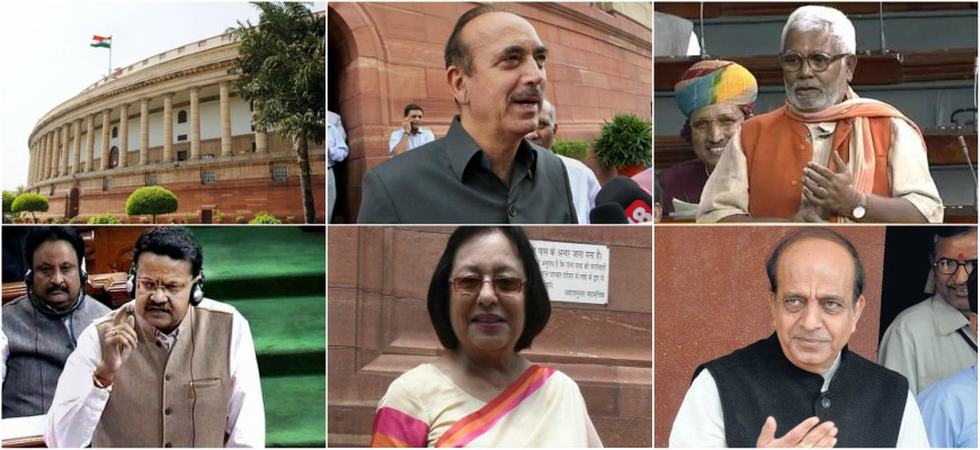
Award for Outstanding Parliamentarian:
- It was instituted in
- It is given annually by the Indian Parliamentary Group to an outstanding sitting Parliamentarian for his/her overall contribution in the Indian Parliament.
- Eligibility:
- A sitting member from either house of Parliament is eligible to receive the award.
- However, a member who has received the award once, will not be considered in the subsequent years.
- The award is given considering the Member's experience, Debating skill, Contribution in various Parliamentary Committees etc.
- A sitting member from either house of Parliament is eligible to receive the award.
- Recipients for 2013-2017:
|
2014 |
Hukmdev Narayan Yadav |
|
2015 |
Gulam Nabi Azad |
|
2016 |
Dinesh Trivedi |
|
2017 |
Bhartruhari Mahatab |
Indian Parliamentary Group:
- Membership: It is an autonomous body with membership open to all current and former Members of Parliament.
- Administration: Lok Sabha Speaker is the ex-officio President of the Group.
- Functions:
- Promotes personal contacts between Members of Parliament.
- Promotes contact between Parliament of India and other countries.
- Functions as the (a) National Group of the Inter-Parliamentary Union and (b) Main Branch of the Commonwealth Parliamentary Association in India.
- Annually presents an "Award for Outstanding Parliamentarian".
- Promotes personal contacts between Members of Parliament.
- Establishment: It was formed in the year 1949 following a motion adopted by the Constituent Assembly in 1948.
Prelims Pointers
Aug. 2, 2018
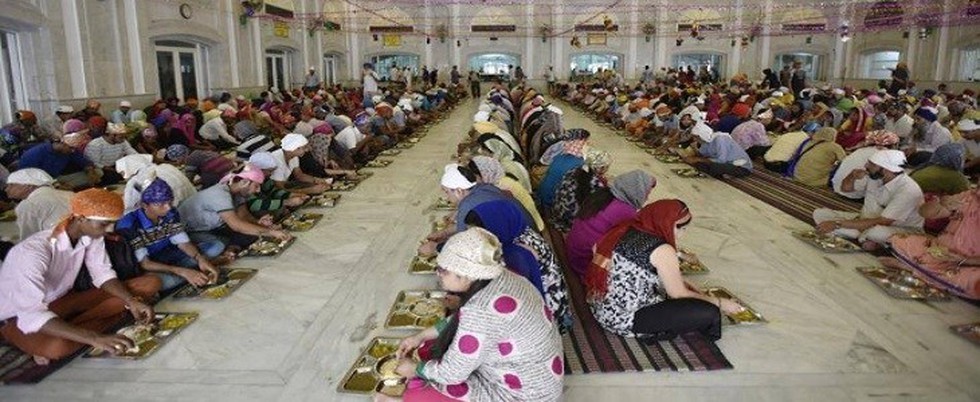
About:
- Objective: To reduce the financial burden of Charitable Religious Institutions who provide Food free of cost without any discrimination to Public/Devotees.
- Working:
- Central Government share of Central Goods and Services Tax (CGST) and Integrated Goods and Service Tax (IGST) on purchase of specific raw food items by Charitable Religious Institutions shall be reimbursed.
- All the eligible institutions should be registered with Darpan portal.
- Central Government share of Central Goods and Services Tax (CGST) and Integrated Goods and Service Tax (IGST) on purchase of specific raw food items by Charitable Religious Institutions shall be reimbursed.
- Eligibility criteria:
- The Charitable Religious Institutions such as Temples, Gurudwara, Mosque, Church, Dharmik Ashram, Dargah, Matth, Monasteries etc. which have been in existence for at least five years and
- which serve free food to at least 5000 people in a month and
- which are registered as Society under Societies Registration Act (XXI of 1860).
- The Charitable Religious Institutions such as Temples, Gurudwara, Mosque, Church, Dharmik Ashram, Dargah, Matth, Monasteries etc. which have been in existence for at least five years and
- Ministry in-charge: Ministry of Culture.
- Duration: Starting from August 1, 2018, the scheme will run for Financial Years 2018-19 and 2019-20 with a total outlay of Rs. 325 crores.
NGO-Darpan portal provides platform for interface between VOs/NGOs and key Government Ministries / Departments / Government Bodies.
It has been developed by National Informatics Centre (NIC) and is managed by NITI Aayog.
Prelims Pointers
Aug. 2, 2018

About:
- 5G is the 5th generation mobile network.
- It will take much larger role than previous mobile network generations (1G, 2G, 3G, and 4G)
- 1G delivered analog voice.
- 2G introduced digital voice (e.g., CDMA).
- 3G brought mobile data (e.g., CDMA2000).
- 4G LTE ushered in the era of mobile Internet.
- 1G delivered analog voice.
5G vs 4G:
- Supports new services: While 4G LTE focused on delivering much faster only, 5G also support new services such as mission-critical communications and Internet of Things (IoT).
- 5G uses spectrum better than 4G: 5G will also get the most out of every bit of spectrum — from low bands below 1 GHz to high bands known as millimetre-wave.
- 5G is faster than 4G: 5G will be delivering up to 20 Gigabits-per-second peak data rates and 100+ Megabits-per-second average data rates.
- 5G has more capacity than 4G: 5G will support a 100x increase in traffic capacity and network efficiency.
- 5G has lower latency than 4G: 5G has the potential to deliver more instantaneous, real-time access: a 10x decrease in end-to-end latency down to 1ms.
Working:
- Like 4G LTE, 5G is also OFDM-based and will operate based on the same mobile networking principles.
- However, the new 5G NR (New Radio) air interface will further enhance OFDM to deliver a much higher degree of flexibility and scalability.
Orthogonal Frequency Division Multiplexing (OFDM) is a form of signal modulation that divides a high data rate modulating stream placing them onto many slowly modulated narrowband close-spaced subcarriers, and in this way is less sensitive to frequency selective fading.
Prelims Pointers
Aug. 2, 2018
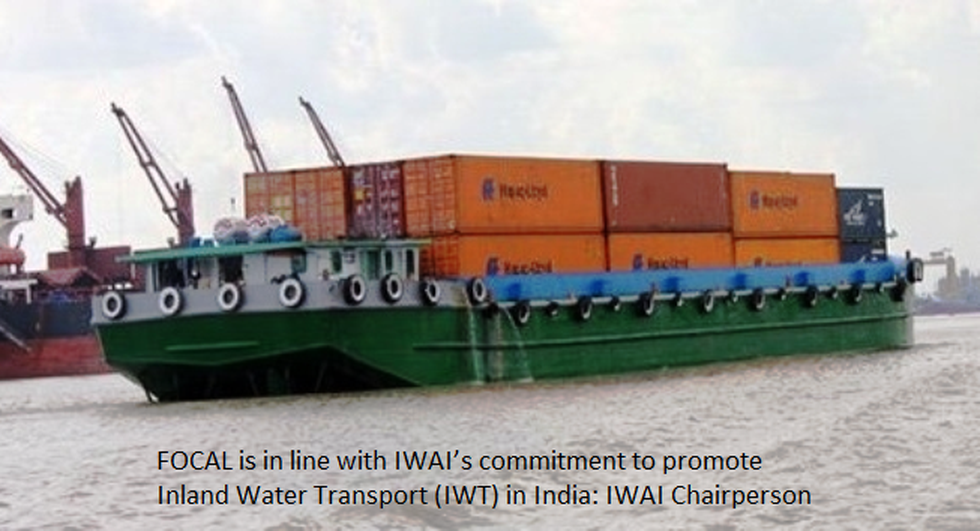
About:
- FOCAL stands for Forum of Cargo-Owners and Logistics-Operators.
- The portal is a first of its kind move to provide details about available vessels in the market as well as to connect cargo owners, shippers and vessel operators with each other.
- It is a part of the strategy for optimal utilisation of various National Waterways
Inland Waterways Authority of India (IWAI) is a statutory body in charge of the development of waterways in India.
It is under Ministry of Shipping and is headquartered in Noida, UP.
Prelims Pointers
Aug. 2, 2018
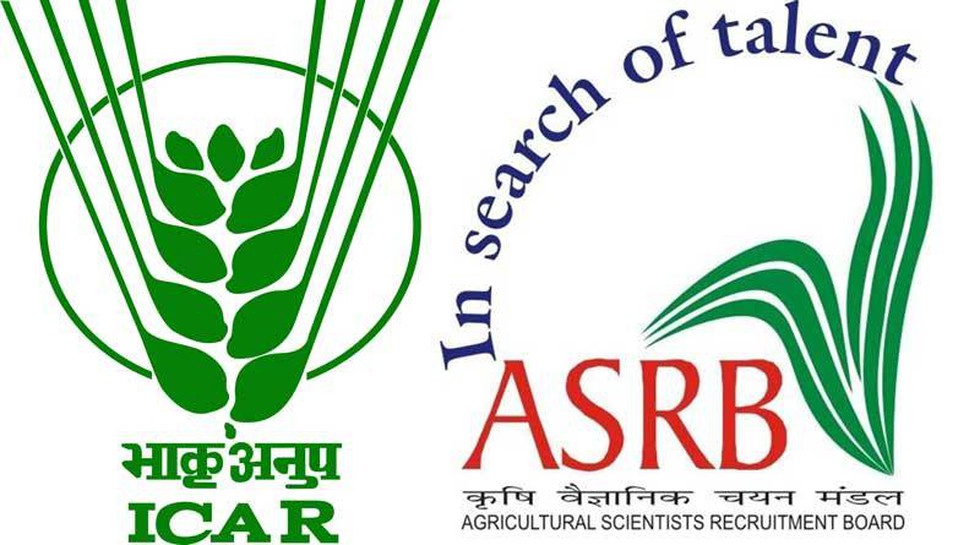
About:
- Background: It was established in 1973 on the recommendations of the Gajendragadkar Committee.
- Mandate: The independent recruitment agency is tasked with recruitment to various scientific positions in Agricultural Research Service (ARS) Positions of ICAR/DARE.
- Recent Restructuring:
|
Composition
|
· ASRB will now be a 4 Member body (instead of 3) having a Chairperson and 3 Members. · Their tenure would be for a period of 3 years or till attainment of 65 years of age, whichever is earlier. |
|
Parent body
|
· It has been delinked from Indian Council for Agricultural Research (ICAR). · Now it being attached with Dept. of Agricultural Research & Education (DARE) under Ministry of Agriculture. |
Prelims Pointers
Aug. 2, 2018
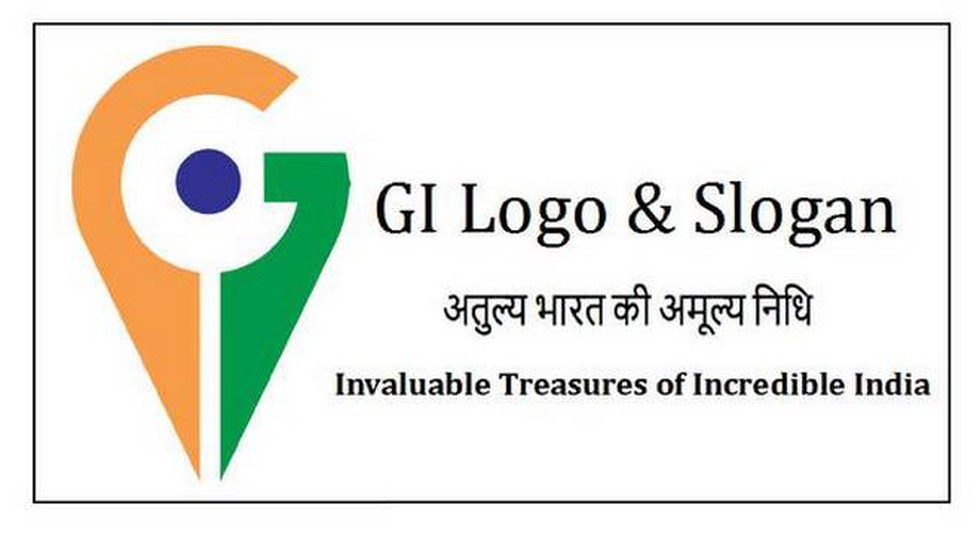
About:
- It is an initiative of the Cell for IPR Promotion and Management (CIPAM) under the Department of Industrial Policy and Promotion (DIPP).
- The GI logo will act as a certifying mark that can be used to identify all registered GIs irrespective of the categories.
The tagline “Invaluable Treasures of Incredible India” will be helpful in effective branding and promotion of GIs.
Geographical Indication (GI) tag?
- The GI tag is prepared by the Geographical Indication Registry and Intellectual Property India.
- These are given on the basis of the Geographical Indications of Goods (Registration and Protection) Act, 1999.
- A GI product is primarily an agricultural, natural or a manufactured product (handicraft and industrial goods) originating from a definite geographical territory.
- It ensures that no one, other than the authorised user can use the popular product’s name.
Darjeeling Tea was the first GI tagged product.
Prelims Pointers
Aug. 2, 2018
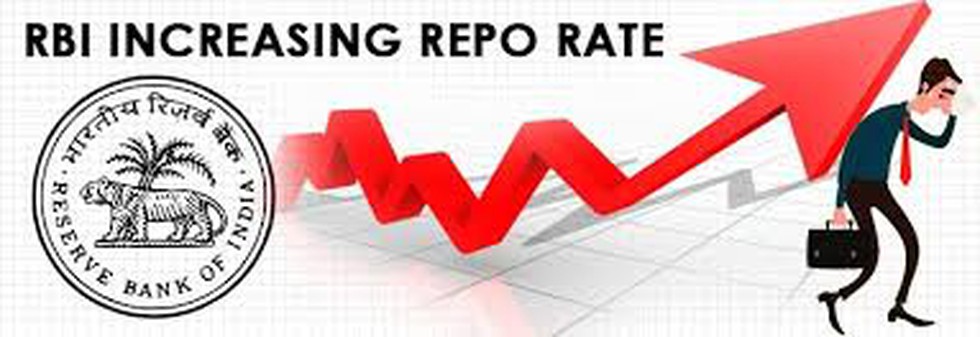
Comment on recent rate hike:
- This is the second successive rate increase which highlights concerns wrt inflation.
- Reasons given by Reserve Bank of India (RBI) while increasing the rate are:
- Risks to macroeconomic stability from a potential ‘currency war’ in the wake of rising global trade tensions,
- Continuing volatility in crude oil prices; Oil supply disruptions due to geopolitical tensions.
- Volatile global financial markets,
- Increase in the minimum support price for kharif crops,
- decline in the total sown area under kharif season due to deficient rainfall over a wider area than last year and
- the impact of upward revisions to house rent allowance paid by State governments.
- Risks to macroeconomic stability from a potential ‘currency war’ in the wake of rising global trade tensions,
- RBI, under the monetary policy framework, is legally mandated to maintain inflation at close to the 4 %per cent mark. In this background, experts have regarded the recent RBI decision as a wise one.
Repurchase rate (or Repo Rate) is the rate at which the RBI lends money to commercial banks in case banks are facing shortfall of funds. if Repo rate is increased then it means banks have to borrow money at high cost.
Reverse repo rate is the rate of interest offered by RBI, when banks deposit surplus funds with the RBI for short periods. In the recent monetary policy review, it has been adjusted to 6.25 %.
Monetary policy committee (MPC) is a 6-member statutory committee with Governor of RBI being its ex officio Chairperson. it determines the policy interest rate required to achieve the CPI inflation target of 4% (within a band of 2-6%).
Prelims Pointers
Aug. 2, 2018

State Energy Efficiency Preparedness Index’:
- Objective: To encourage states towards implementing national energy efficiency initiatives to ensure energy security.
- Developed by: NITI Aayog and Bureau of Energy Efficiency (BEE).
- Categories of states:
- States are put into 4 categories — front runner, achiever, contender and aspirant – on the basis of their policies towards energy efficiency.
- 5 states namely Andhra Pradesh, Kerala, Maharashtra, Punjab and Rajasthan are in the front runner category.
- States are put into 4 categories — front runner, achiever, contender and aspirant – on the basis of their policies towards energy efficiency.
Energy Conversation Guidelines (for energy intensive industries):
- Applicability: Guidelines are for energy intensive industries (large as well as MSMEs) that are covered under the Government’s Perform Achieve and Trade (PAT) scheme.
- Objective: To help energy intensive industries in improving energy efficiency for major energy consuming utilities.
- Developed by: Energy Conservation Centre of Japan (ECCJ) and Bureau of Energy Efficiency (BEE) as a part of Indo-Japan Energy Dialogue.
Bureau of Energy Efficiency (BEE) is a statutory body under Ministry of Power. It was established in 2002 under the Energy Conservation Act, 2001.
Perform Achieve and Trade Scheme (PAT), launched in 2008, is a market-based trading scheme.
It aims to improve energy efficiency in industries by trading in energy efficiency certificates in energy-intensive sectors.
Aug. 1, 2018
Prelims Pointers
Aug. 1, 2018

National Policy on Biofuels – 2018: Salient Features
- Categorisation of Biofuels: Biofuels have been categorised into 3 categories to extend appropriate fiscal incentives –
- First Generation (1G): Bio-Ethanol produced from molasses and bio-diesel from non-edible oilseeds (a.k.a Basic Biofuels).
- Second Generation (2G): Bio-ethanol produced from municipal solid waste (a.k.a Advanced Biofuels).
- Third Generation (3G): Fuels like bio-CNG.
- First Generation (1G): Bio-Ethanol produced from molasses and bio-diesel from non-edible oilseeds (a.k.a Basic Biofuels).
- Expansion of Scope of raw material for ethanol production: Starch containing materials like Corn, Damaged food grains like wheat, Rotten Potatoes, unfit for human consumption for ethanol production can be used.
- Surplus food grains can be used for ethanol production:
- It allows use of surplus food grains for production of ethanol for blending with petrol with the approval of National Biofuel Coordination Committee.
- This will benefit Farmers who are at a risk of not getting appropriate price for their produce during the surplus production phase.
- It allows use of surplus food grains for production of ethanol for blending with petrol with the approval of National Biofuel Coordination Committee.
- Viability gap funding: With a thrust on Advanced Biofuels, the Policy indicates a viability gap funding scheme for 2G ethanol Bio refineries.
Rajasthan’s strategy:
- It will emphasise on increasing production of oilseeds and establish a Centre for Excellence in Udaipur to promote research in the fields of alternative fuels and energy resources.
Prelims Pointers
Aug. 1, 2018

About
- Comment on Recent decision:Safeguard measures are “emergency” measures wrt increased imports of particular products. Such measures can consist of quantitative import restrictions or increase in import duty.
- Guiding principles while applying safeguard measures:
- they may be imposed only when imports of a particular product have caused or threaten to cause serious injury to the importing Member's domestic industry.
- they be applied on a non-selective (i.e., most-favoured-nation, or “MFN”) basis;
- such measures must be temporary;
- they be progressively liberalized while in effect; and
- the Member imposing them must pay compensation to the Members whose trade is affected.
- they may be imposed only when imports of a particular product have caused or threaten to cause serious injury to the importing Member's domestic industry.
- Agreement on Safeguards:
- The Agreement on Safeguards sets the above mentioned rules for application of safeguard measures pursuant to Article XIX of General Agreement on Tariffs and Trade (GATT), 1994.
- It was negotiated because GATT member were applying variety of ‘grey area’ measures (bilateral voluntary export restraints, orderly marketing agreements, and similar measures) to limit imports of certain products.
- The Agreement on Safeguards sets the above mentioned rules for application of safeguard measures pursuant to Article XIX of General Agreement on Tariffs and Trade (GATT), 1994.
- In India, the Customs Tariff Act, 1975 has been amended to include various related provisions.
- The move is aimed towards helping the domestic solar cell manufacturers who are facing tough competition from cheap Chinese imports.
- However, according to analysts, this could affect existing projects dependent on cheap imports.
‘Serious injury’ means significant impairment in the position of a domestic industry.
‘Threat of serious injury’ is threat that is clearly imminent as shown by facts, and not based on mere allegation, conjecture or remote possibility.
Prelims Pointers
Aug. 1, 2018
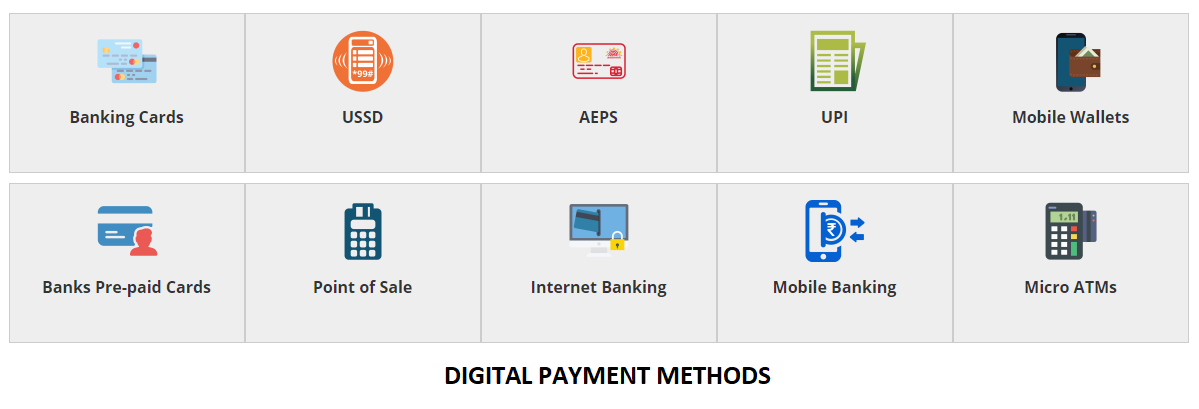
Principal Advisor to NITI Aayog launched a booklet titled ‘Digital Payment: Trends, Issues and Opportunities’. This is the 2nd annual edition of the booklet which was first published in 2017.
Summary findings of report:
- Post demonetisation, the growth in digital payment gained momentum in both volume and value terms.
- Future drivers of growth of digital payments in the country:
- Growth in mobile payments are slated to rise to $190 billion by 2023 from $10 billion in 2017-18
- Proposed changes in the regulatory framework as per Watal Committee Report
- Entry of global giants
- Advancement of technology; Growth of New Products like unified Payment interface (UPI)
- Growth in mobile payments are slated to rise to $190 billion by 2023 from $10 billion in 2017-18
- This will present huge business opportunities for players in the digital space.
Do you know?
NITI Aayog has also initiated a short-term course on Digital Payments in collaboration with HRD Ministry under the Global Initiative of Academic Networks (GIAN) Scheme.
It was held at Mangalore University in July 2018.
Prelims Pointers
Aug. 1, 2018
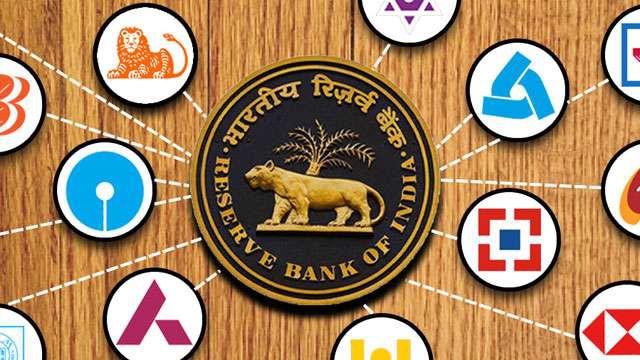
About:
- In 2013, the Reserve Bank of India (RBI) released a framework for the setting up of wholly-owned subsidiaries (WOS) by foreign banks in India.
- The WOS model is ‘Not mandatory’, but RBI wants foreign banks to operate under via this model due to following reasons:
- To insulate banking operations in India from any crisis the parent bank may be facing
- To ensure better regulation
- To insulate banking operations in India from any crisis the parent bank may be facing
- Benefits for foreign banks under WOS model:
- Treatment at par with local banks
- Allowed to acquire private lenders in India
- More freedom to open branches, subject to some regulations
- Treatment at par with local banks
- Present Status:
- State Bank of Mauritius: After the recent approval, the bank will soon operate in India under the name of SBM Bank (India) Ltd.
- Singapore based DBS Bank: It is also awaiting final approval from the RBI.
- State Bank of Mauritius: After the recent approval, the bank will soon operate in India under the name of SBM Bank (India) Ltd.
Prelims Pointers
Aug. 1, 2018

Constitutional Provisions wrt Schedule Tribes (STs):
- Article 366(25): It defines Scheduled Tribes as those tribes that are deemed under article 342 to be STs for the purposes of this Constitution.
- Article 342(1): President may notify the STs in a state after consultation with the Governor of the state.
- Article 342(2): It talks about the further inclusion or exclusion of any tribe from this list.
Dhangars are a shepherd community of Maharashtra who live mostly in Western Maharashtra and Marathwada.
They claim that they are the same as “Dhangad” elsewhere in the country, who are listed as a Scheduled Tribe.
However, a typographical error led to the community’s name being recorded as “Dhangar”, thus denying them the benefits available to the ST “Dhangads”.
Criteria for a tribe to be included in the list of ST:
- For the process of inclusion/exclusion/modification in the list of Scheduled Tribes, the Ministry of Tribal Affairs follows the following criteria:
- Indications of primitive traits;
- Distinctive culture;
- Geographical isolation;
- Shyness of contact with the community at large; and
- Backwardness
- According to the Ministry, these criteria are not spelt out in the Constitution but have become well established and accepted.
Constitution (Scheduled Tribes) Order, 1950:
- In accordance with the above mentioned constitutional provision and the criteria evolved, the President issued the "Constitution (Scheduled Tribes) Order, 1950.
- It contains the list of Scheduled Tribes in relation to particular States or Union Territories.
Prelims Pointers
Aug. 1, 2018
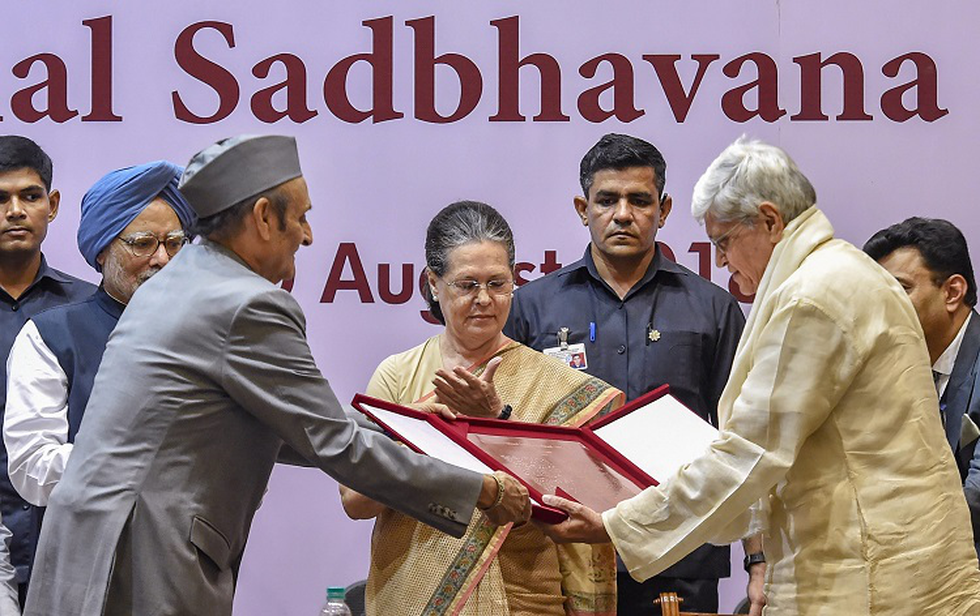
About:
- Background: It was instituted in 1992 by All India Congress Committee (AICC) of the Indian National Congress Party (INC) to commemorate the contribution made by former Prime Minister Rajiv Gandhi.
- Criteria: It is given for outstanding contribution towards promotion of communal harmony, national integration and peace.
- Award ceremony: Award is presented on the birth anniversary of Rajiv Gandhi (August 20), which is celebrated as Sadbhavna Diwas (Harmony Day).
- Cash Prize: It carries a cash award of ₹10 lakhs.
- Some of the Former recipients of the award include:
- Former President K R Narayanan,
- Social workers like Mother Teresa, Muhammad Yunus (founder of Grameen Bank, Bangladesh)
- Musicians like Ustad Bismillah Khan, Lata Mangeshkar, Amjad Ali khan etc.
- Former President K R Narayanan,
Prelims Pointers
Aug. 1, 2018

About:
- Central Water Commission (CWC) of India uses a colour-coded warning system to alert local populations of the severity of a flood situation.
- The colour-coded warning system includes Orange, Red and Yellow alert (refer table).
- Water Levels wrt Flooding:
- Each flood forecasting station of the river has a defined ‘warning level’, ‘danger level’ and ‘highest flood level’.
- While the warning and danger levels are fixed for a river, the highest flood level is adjusted every year ahead of the start of the flood season on the basis of levels reached the previous year.
- While the warning and danger levels are fixed for a river, the highest flood level is adjusted every year ahead of the start of the flood season on the basis of levels reached the previous year.
- Each flood forecasting station of the river has a defined ‘warning level’, ‘danger level’ and ‘highest flood level’.
|
Yellow alert |
It is issued when the river is ‘above normal flood’ level. i.e. the level is between the warning and danger levels. |
|
Orange alert |
It is issued when the river is in ‘severe flood’. i.e. the level is between the danger and highest flood levels. e.g. in Idukki, where the maximum storage level is 2,403 ft, the orange alert was issued after it reached 2,395 ft. |
|
Red alert |
It is issued when the waters breach the highest flood level. e.g. In Idukki, a red alert would be issued if the water reaches 2,399 ft. |
Prelims Pointers
Aug. 1, 2018

About:
- Snakebite envenoming is a potentially life-threatening disease.
- Cause: It is generally caused by the bite of a venomous snake. However, it can also be caused by having venom sprayed into the eyes by snakes.
- Statistics: by World Health Organization (WHO)
- About 5 million snakebites occur each year, resulting in up to 2.7 million envenoming’s.
- This causes 81,000- 38,000 deaths annually, apart from causing amputations and other permanent disabilities,
- It is a major concern in rural areas of tropical and sub-tropical countries situated in Africa, the Middle-East, Asia, Oceania and Latin America.
- About 5 million snakebites occur each year, resulting in up to 2.7 million envenoming’s.
- Treatment: Anti-snake venom (ASV) are effective treatments to prevent or reverse most of its harmful effects.
- Steps by WHO:
- In June 2017, WHO added snakebite envenoming to its priority list of neglected tropical diseases (NTDs).
- Anti-snake venom (ASV) is included in the WHO Essential Medicines List.
- In June 2017, WHO added snakebite envenoming to its priority list of neglected tropical diseases (NTDs).
- Indian scenario:
- In 2017-18, 1.96 lakh cases of snakebites were recorded, most of them being in West Bengal, Maharashtra and Tamil Nadu. Of these, around 50,000 died.
- Haffkine Bio-Pharmaceutical Corporation Ltd (a Maharashtra govt. PSU) is the only government-owned Anti-snake venom (ASV) manufacturer in India.
- In June 2018, Maharashtra also approved the setting up of a National Venom Research Centre.
Anti-snake venom (ASV) is a biological product used in the treatment of venomous bites.
Monovalent ASV: It is made from the venom of one species and can treat the bite of only that species.
Polyvalent ASV: It combines the venoms of India’s 4 most common poisonous snakes — cobra, common krait, Russell’s viper, and saw-scaled viper. India currently manufactures only polyvalent ASV.
- In 2017-18, 1.96 lakh cases of snakebites were recorded, most of them being in West Bengal, Maharashtra and Tamil Nadu. Of these, around 50,000 died.
Prelims Pointers
Aug. 1, 2018
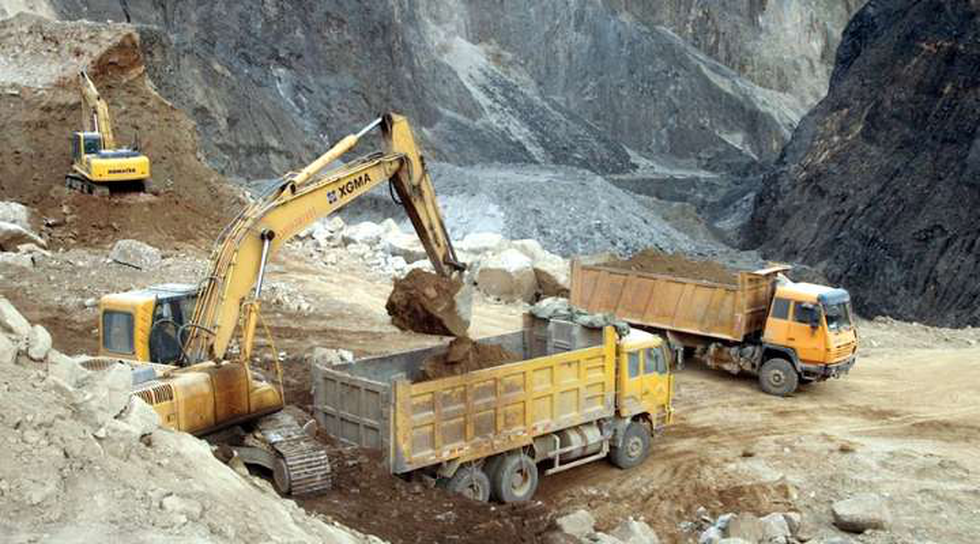
About:
- Mines and Minerals (Development & Regulation) Amendment Act, 2015, mandated the establishment of District Mineral Foundations (DMFs) in all mining districts of the country.
- DMF is a trust set up as a non-profit body to work for the benefit of people affected by mining operations.
- DMFs are also expected to implement the Pradhan Mantri Khanij Kshetra Kalyan Yojana (PMKKKY), launched in 2015 for the welfare of mining areas and affected population.
- Findings of study by CSE:
- mining-affected people as beneficiaries have not been identified;
- negligible representation of Gram Sabha members in the DMFs; DMF administration is dominated by bureaucrats and political representatives;
- lack of clear planning due to absence of a proper administrative set-up;
- mining-affected people as beneficiaries have not been identified;
excessive state government intervention in deciding utilisation of DMF funds etc.
None
Prelims Pointers
Aug. 1, 2018
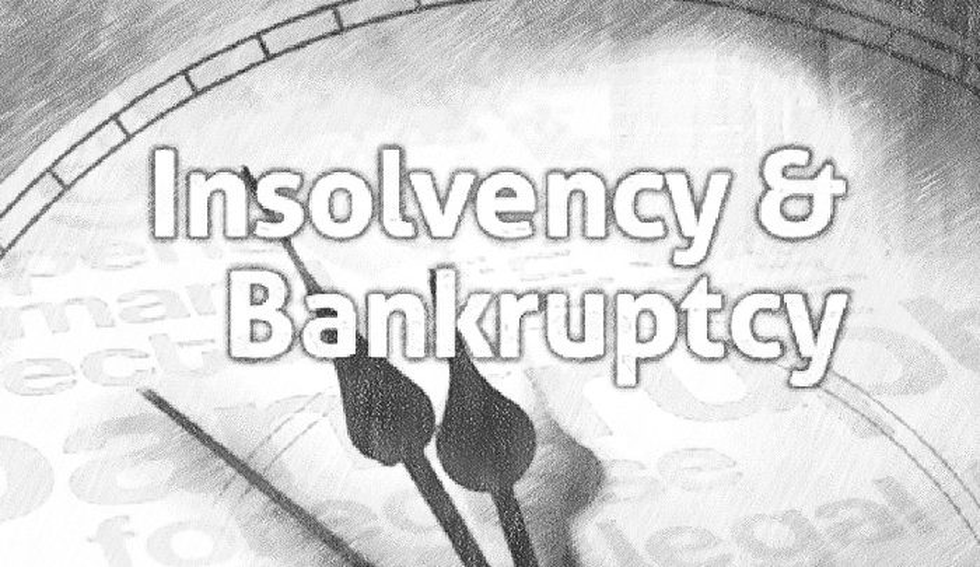
Background:
- The Insolvency and Bankruptcy Code, 2016 was enacted to consolidate and amend the laws relating to reorganisation and insolvency resolution of corporate persons, partnership firms and individuals in a time bound manner.
- During the passing of the IBC (Amendment) Act, 2018 in Parliament, a consensus had emerged that further improvement of the Code would be required.
- In this background, IBC (second amendment) bill 2018 has been passed.
Salient Features of Amendment Bill:
- It clarifies that allottees under a real estate project should be treated as financial creditors.
- Voting threshold for routine decisions taken by the committee of creditors has been reduced from 75 % to 51 %. For certain key decisions, this threshold has been reduced to 66 %.
- It allows the withdrawal of a resolution application submitted to the National Company Law Tribunal under the Code. This decision can be taken with the approval of 90 % of the committee of creditors.
Insolvency: Insolvency is essentially the state of being that prompts one to file for bankruptcy. An entity – a person, family, or company – becomes insolvent when it cannot pay its lenders back on time.
Bankruptcy: Bankruptcy is a legal declaration of one’s inability to pay off debts.

